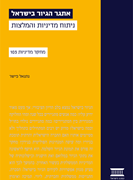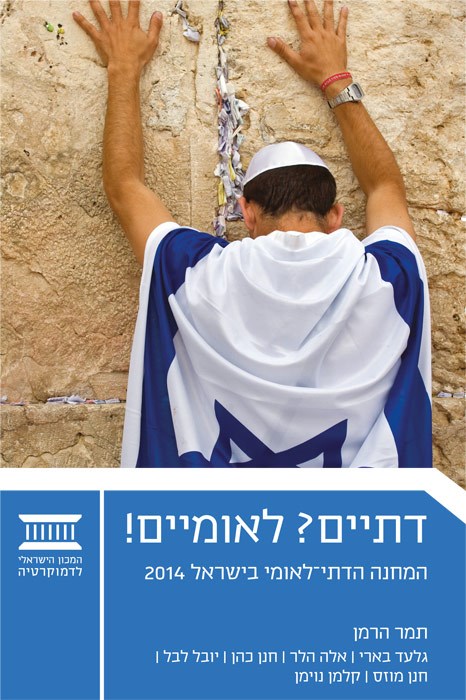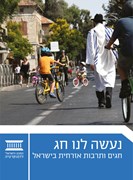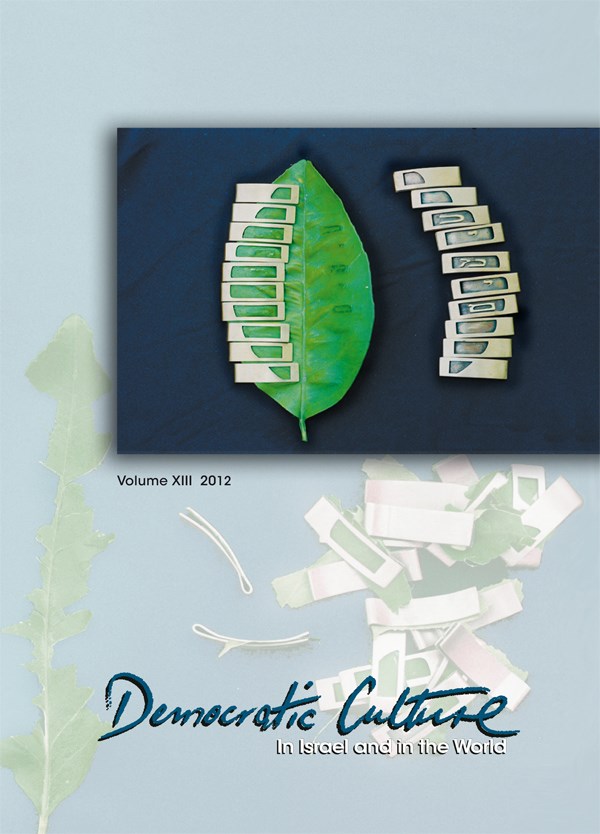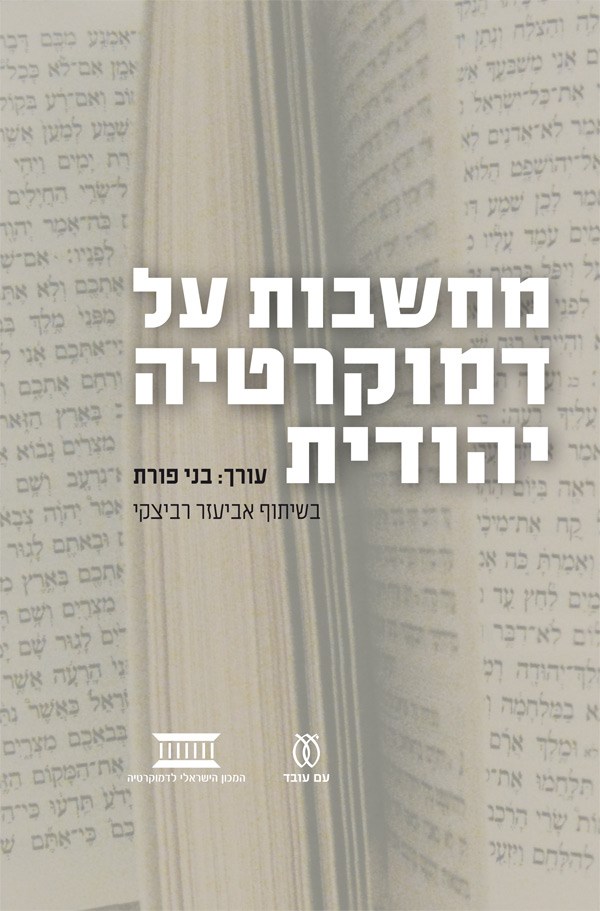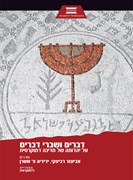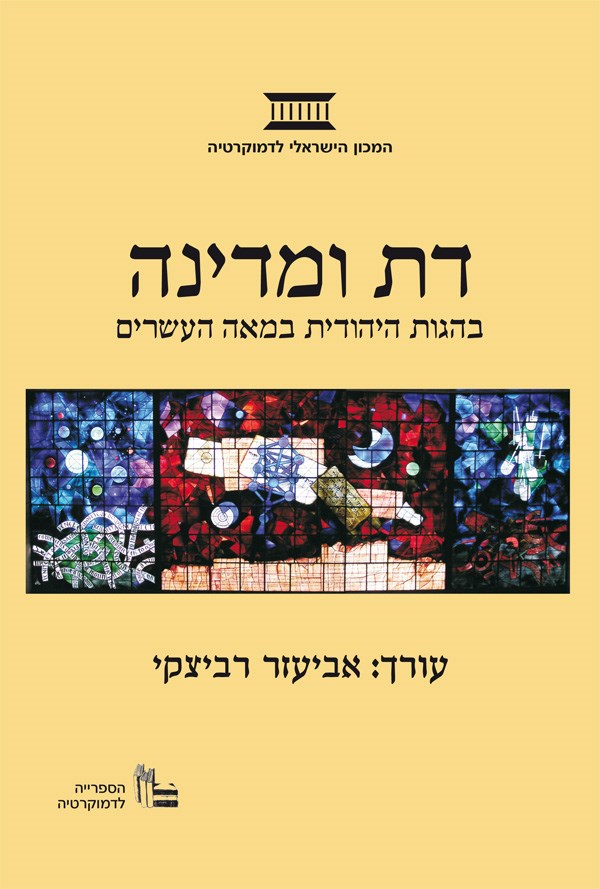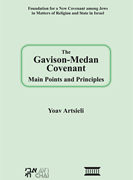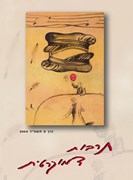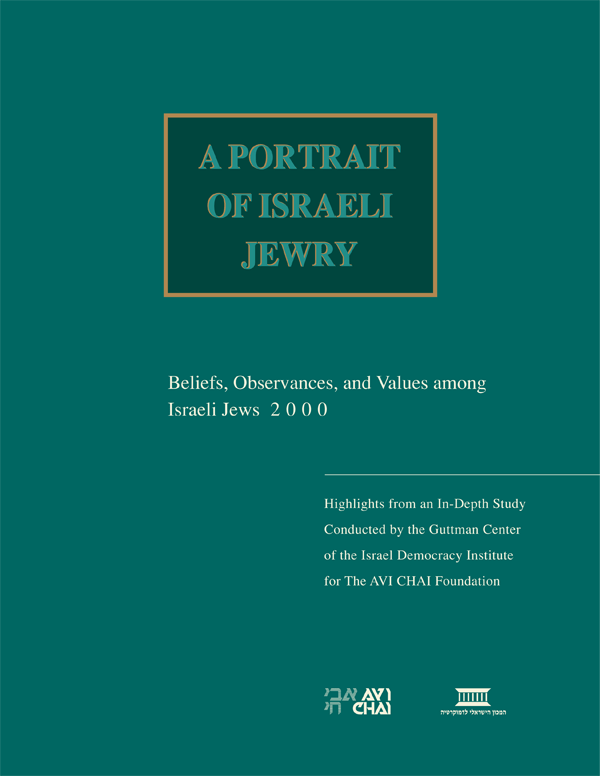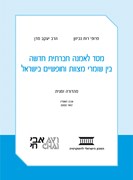

Publications Regarding Jewish identity
Articles
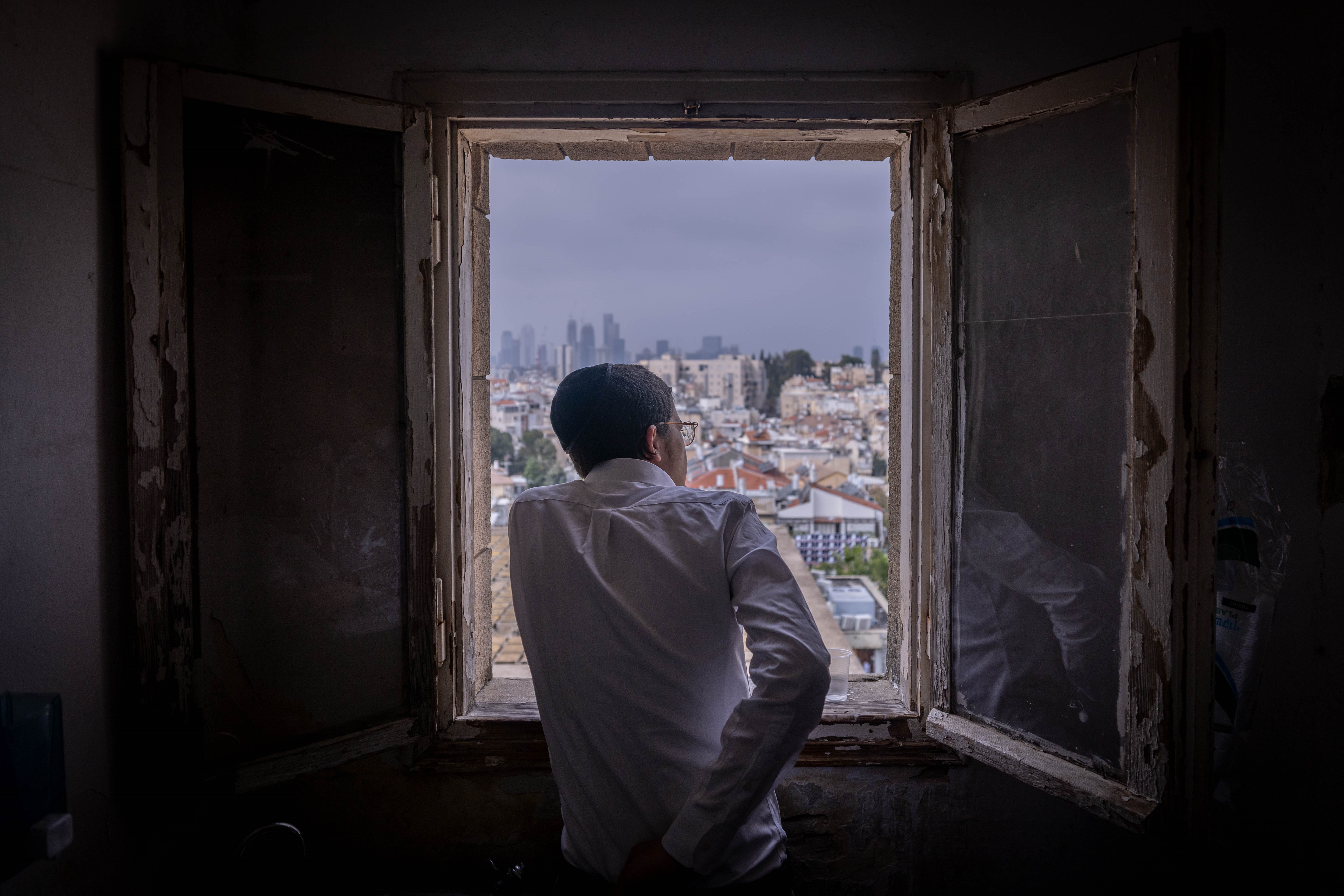
I, Too, Have Come to my Senses: It is Time to Rethink the Haredi Role in Israeli Society
Written By: Dr. Rivka Neriya Ben-Shahar
Dr. Rivka Neriya-Ben Shahar proposes a model that resembles the secular educational system of colleges and universities to identify the most gifted torah scholars, who would receive a generous stipend. Others must rethink their role as part of Israeli society.

Who is a Jew? Survey on Religion and State
Written By: Dr. Ariel Finkelstein, Ayala Goldberg, Adv. Shlomit Ravitsky Tur-Paz
70% of Jewish Israelis do not accept patrilineal descent and therefore do not consider those born to a Jewish father and non-Jewish mother to be Jewish. The new IDI survey reveals what Israelis really think on matters of religion and state
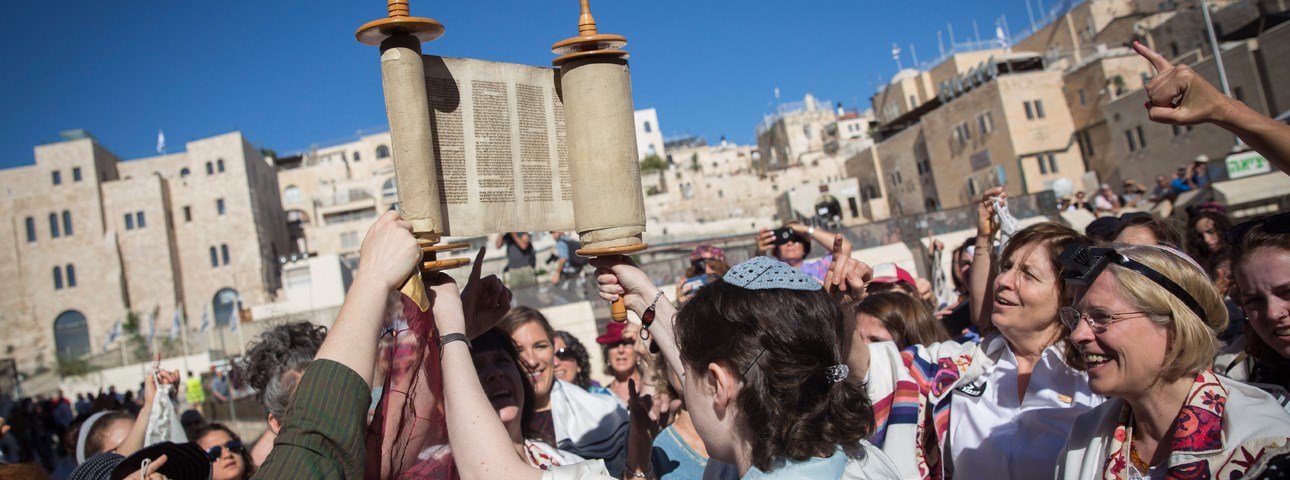
Kotel Compromise Must Be Honored
Written By: Yohanan Plesner , Adv. Shlomit Ravitsky Tur-Paz
The friction and hostility we witnessed today at one of Judaism's holiest sites is unacceptable and could have been avoided if the previously agreed upon 'Western Wall Compromise' had been honored.

Transitions Between Religious Groups among Israeli Jews: Abstract
Written By: Gabriel Gordon
This study provides first-ever reliable estimate of the rate and scope of transitions into and out of the ultra-Orthodox community; an analysis made possible thanks to innovative methodology and a rich dataset.

The Dissonance of Israel’s “Hardalim”
Written By: Yair Sheleg
How does Israel’s national-ultra-Orthodox population (“Hardalim”) combine ideals of the "new Jew" with their ultra-Orthodox religious world view?
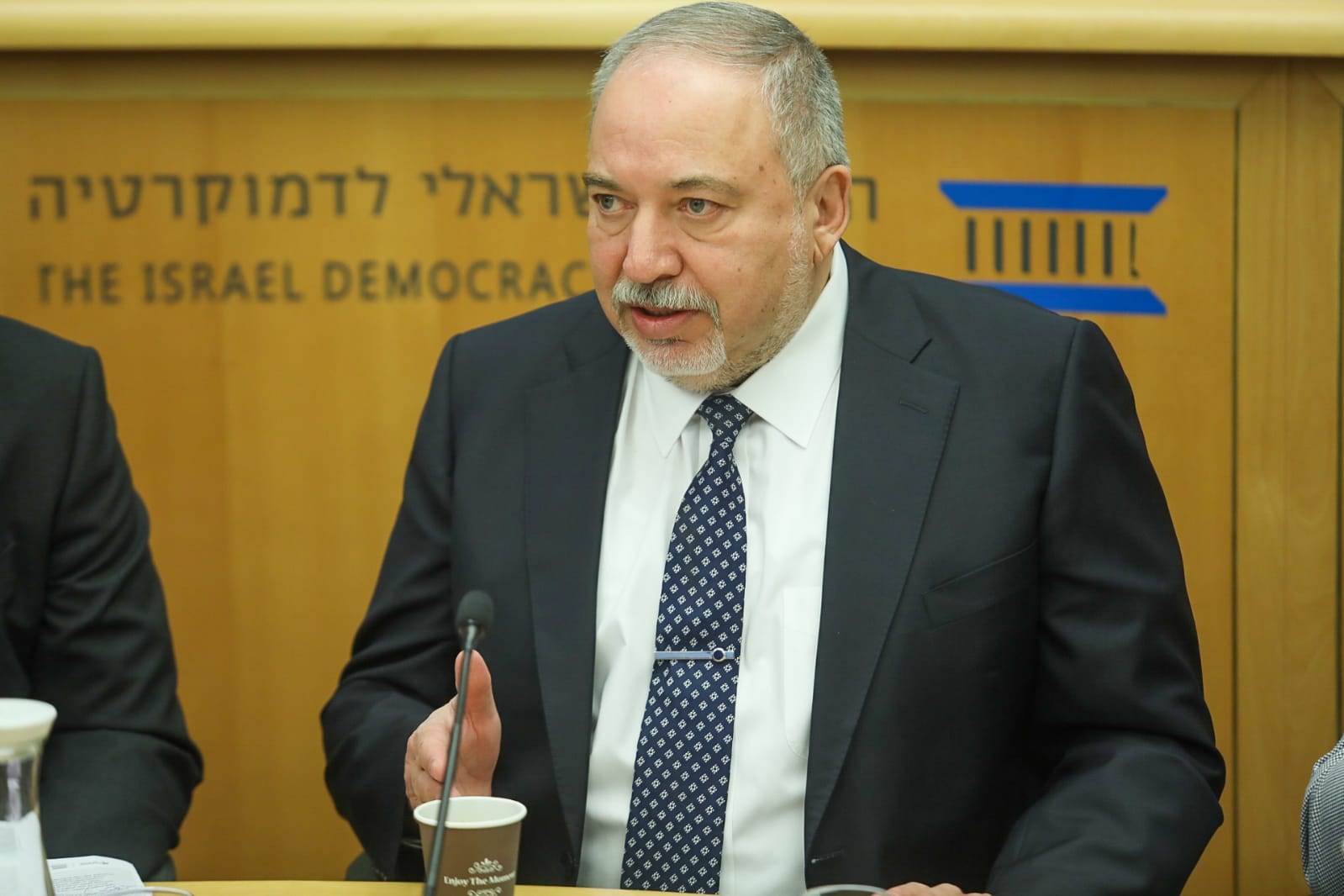
Towards a New Covenant on Religion and State in Israel: Conference
At IDI's conference Former Defense Minister MK Avigdor Liberman said he will not advance the recruitment plan he had drafted with the Ministry of Defense. "Every 18-year-old will be required to enlist."

Our Jewish Solidarity is Eroding
Written By: Dr. Shuki Friedman
Jewish Diaspora communities find it hard to identify with Israel and Israel's Jewery.

60% of Jewish Israelis Plan to Fast on Yom Kippur
With Yom Kippur (the Day of Attornment) upon us, our Guttman Center for Public Opinion and Policy Research checked how Israelis plan on marking the most solemn day in the Jewish calendar.
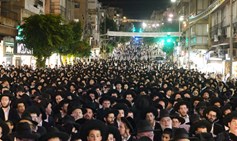
Perceptions on Citizenship among Ultra-Orthodox Israelis
Written By: Dr. Asaf Malchi
Despite the fact that the State of Israel and its central institutions are essentially secular and reflect a Zionist self-image, according to data from the 2016 Democracy Index only two-thirds (64%) of ultra-Orthodox Israelis report having a strong sense of belonging to the state.
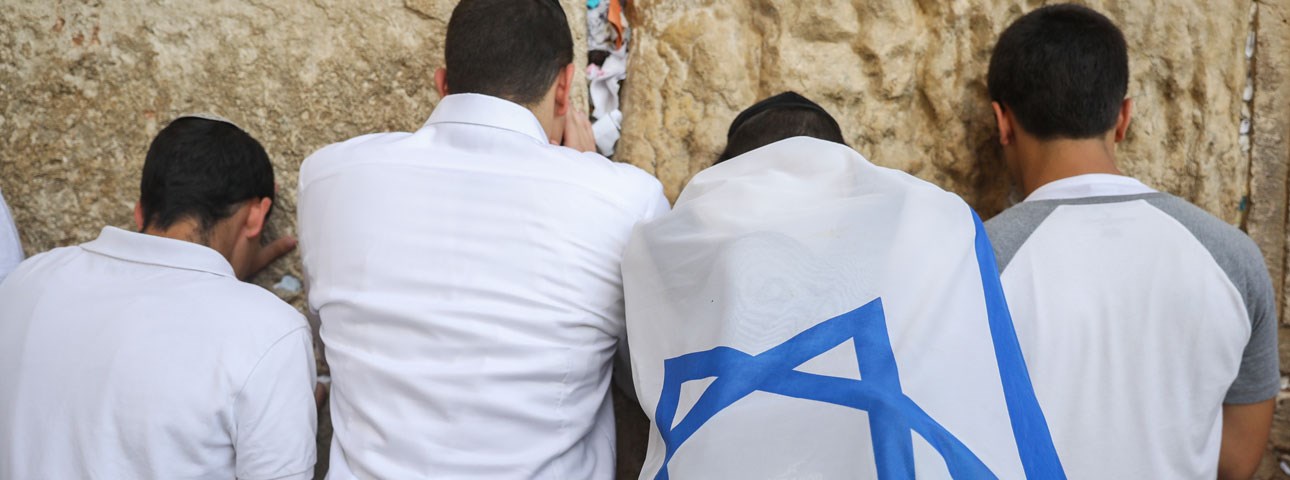
Jewish Identity is Highly Explosive: Handle with Care
Written By: Dr. Shuki Friedman
Many Israeli policies only influence Israeli citizens. But when it comes to questions of Jewish identity, every decision and every statement made reverberates throughout the Jewish world.
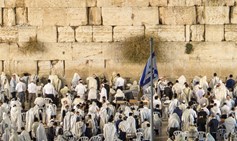
How Jewish Israelis Feel Towards Non-Jews and the Current Conversion Process – Shavuot Survey
Written By: Prof. Tamar Hermann, Dr. Or Anabi
Conversion is a central theme of the upcoming holiday of Shavuot when the biblical story of Ruth the Moabite – widely considered the first convert to Judaism – is traditionally read. In the spirit of the holiday, we decided to examine what types of relationships Jewish Israelis are ready to have with non-Jews. We also looked into what Jewish Israeli think about the topic of conversions in general and the conversion process in Israel in particular.
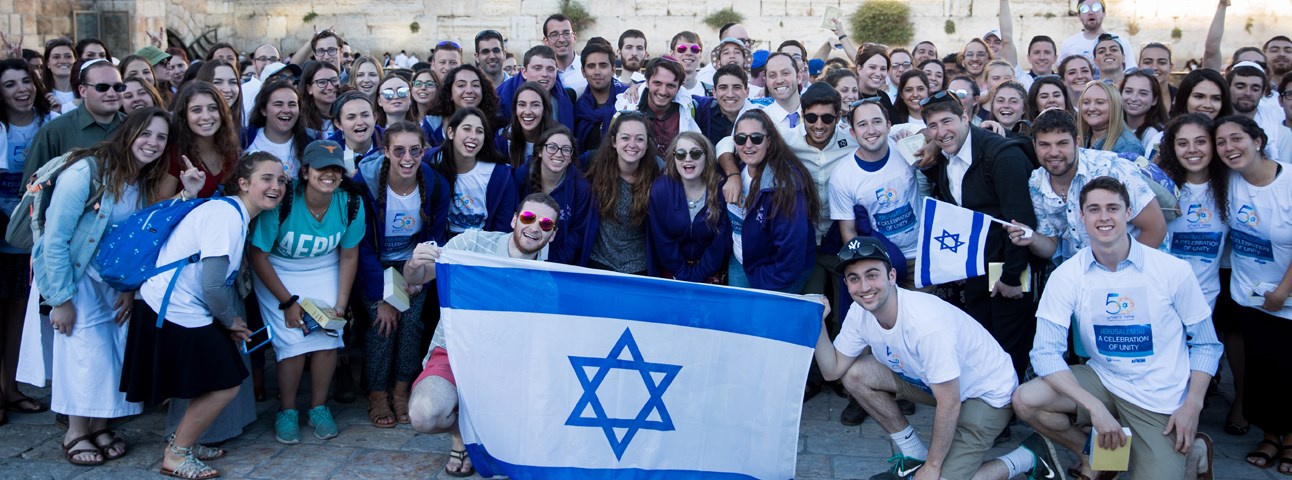
Solidifying the Israel-Diaspora Relationship
Written By: Prof. Yedidia Z. Stern
Is it conceivable, for example, that a legislative body would enact a tax that would never apply, to its own members?
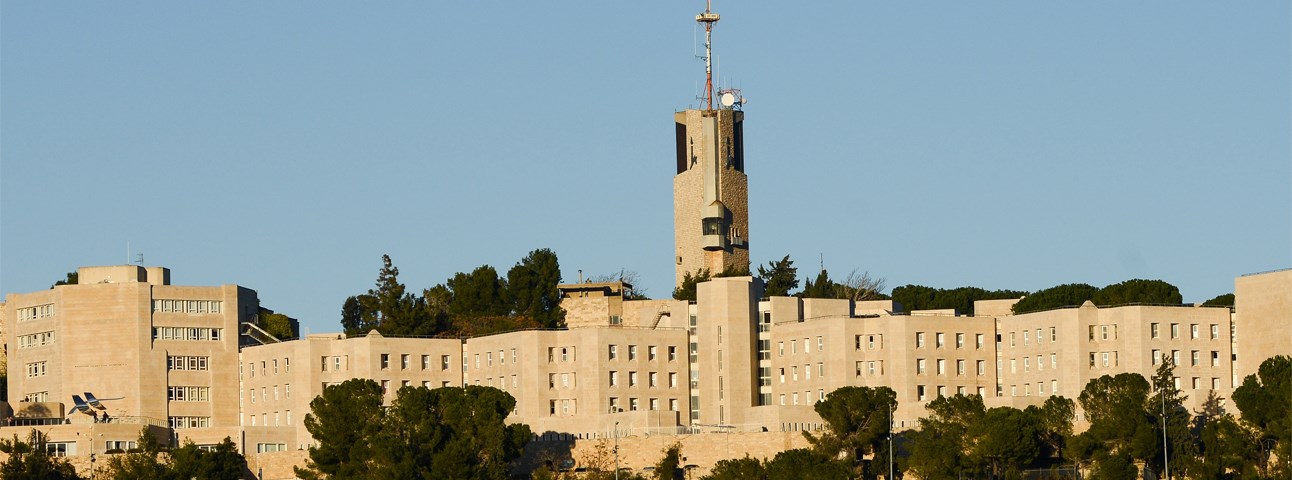
Observing the World from Our Own Perspective
Written By: Prof. Yedidia Z. Stern
Israeli society—its marketplace of ideas, its democratic institutions, the rule of law, the components of national identity—is caught in the turbulent vortex of a kulturkampf—a “culture war”.

Being Able to Say No
Written By: Yair Sheleg
How can we reverse the growing rift between Israel and diaspora Jewry? Both sides have their work cut out.
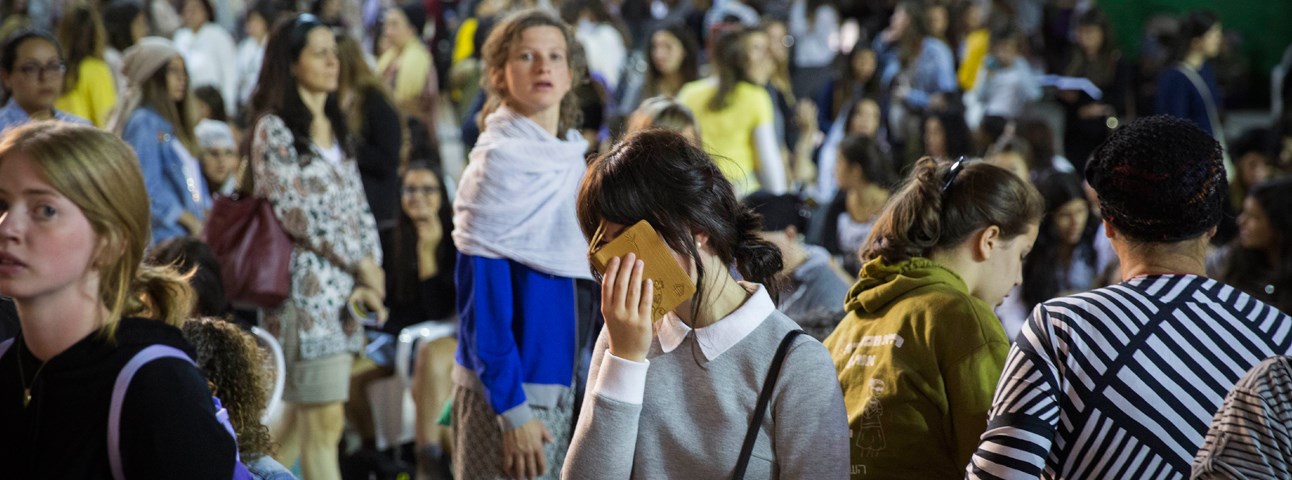
Are We Guilty? Are We Traitors?
Written By: Prof. Yedidia Z. Stern
Shared responsibility, engraved in Jewish tradition, is one of the secrets of the State of Israel's success and the use of the plural form in confession reflects this perception.

On This Day the World Stands on Trial
Written By: Yair Sheleg
Do we really believe that our fate for the coming year is determined on this day?
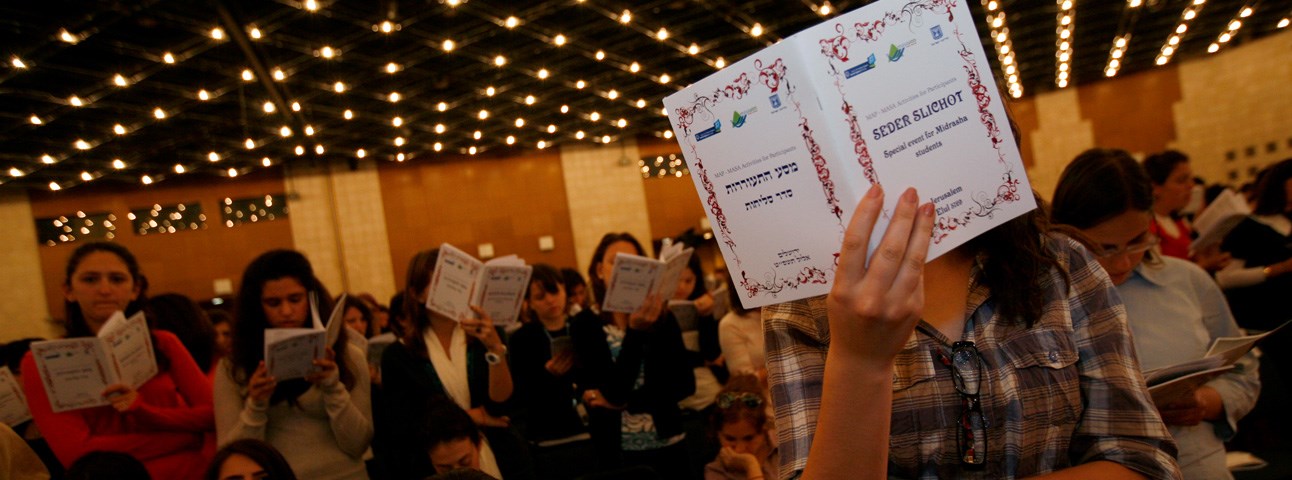
Israeli Collective Repentance
Written By: Prof. Yedidia Z. Stern
A collective Israeli repentance will enable us all to pray together for our common good, even if the content of our prayers is a matter of fierce disagreement.
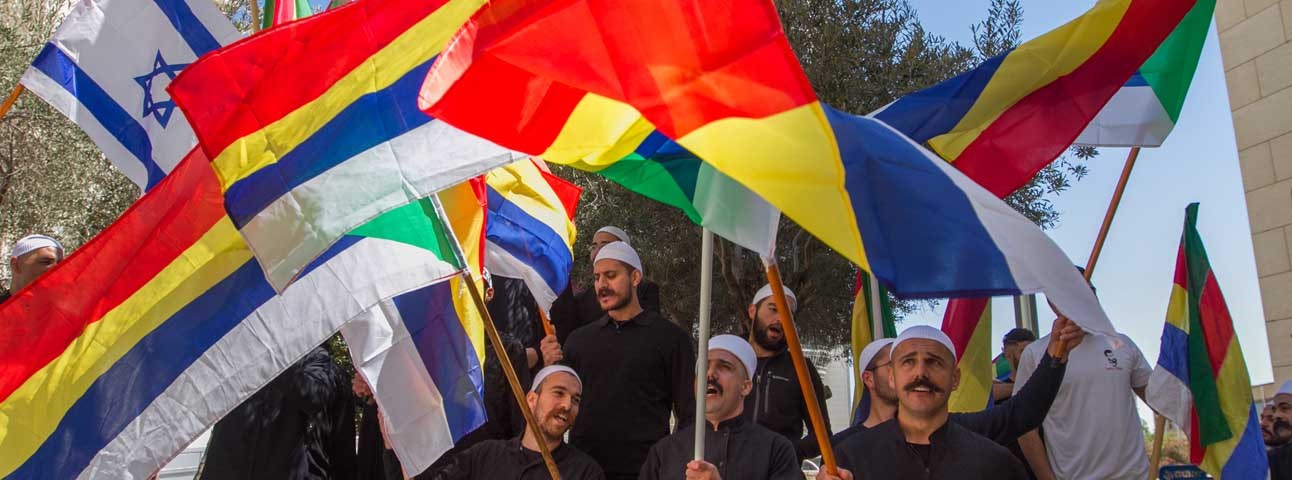
60% of Israelis Think the New Nation-State Law Should Have Included ‘Equality'
Written By: Prof. Tamar Hermann, Prof. Ephraim Yaar
The monthly Peace Index of the Israel Democracy Institute and Tel Aviv University, published today, finds that: only 52% of Jewish Israelis think it was important to pass the Nation-State law at this time.

The Nation State Bill is a Constitutional Abandonment of Diaspora Jewry
Written By: Dr. Shuki Friedman
This bill is superfluous and will do far more harm than good. In its newly revised version, the Nation-State Bill, which has been problematic since its inception, reaches new lows by effectively abandoning Diaspora Jewry.
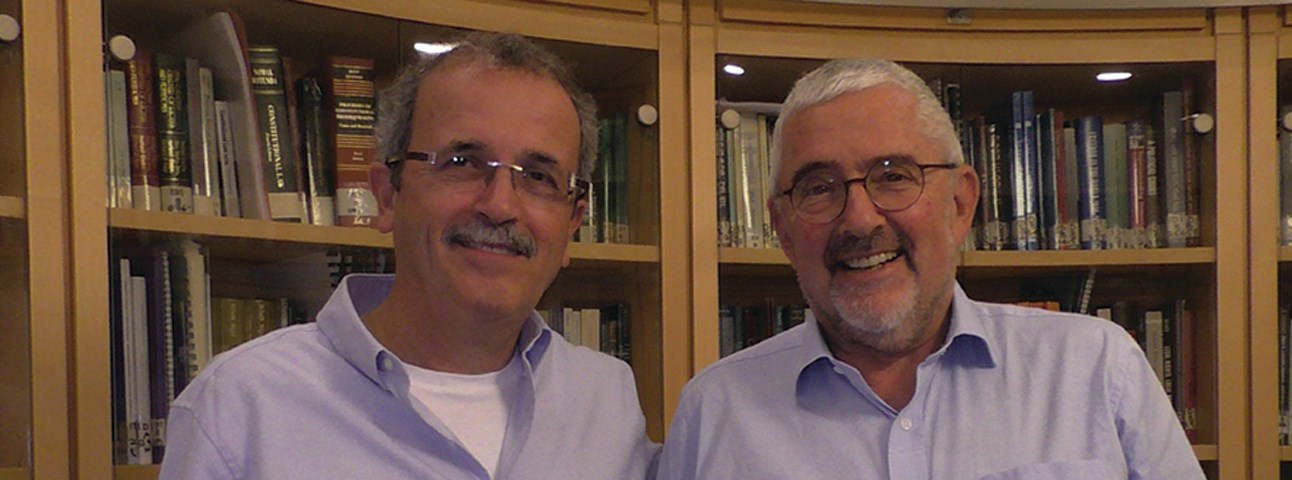
Israel's Religion and State Rift is a Minefield for American Jews
Written By: Maayan Hoffman, Prof. Yedidia Z. Stern, Mr. Alan Hoffmann
Thought leaders recommend an ‘all in the family’ perspective when it comes to challenges between Jews in Israel and the Diaspora.

Personal Holocaust, Personal Responsibility
Written By: Dr. Shuki Friedman
As a second generation Holocaust survivor, Dr. Shuki Friedman says that, "beyond the responsibility of building our own lives and the state, there is also a personal responsibility not only to remember, but to pass on remembrance to the next generation."
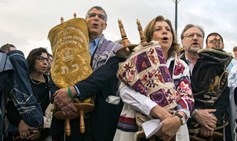
Replace ‘Who is a Jew?’ with ‘Who is a Jew for What?’
Written By: Shmuel Rosner
In a time of fluid identity, Jews understand the need to be pragmatic in defining Jewishness.
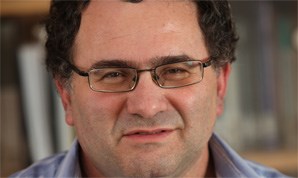
New Jew?
Written By: Yair Sheleg
Judaism is no longer intimately and inexorably linked to religious observance.
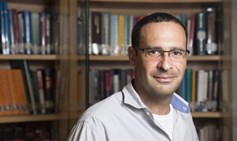
Rosh Hashanah Resolution
Written By: Dr. Shuki Friedman
The upcoming High Holidays are an opportunity to expand our perception beyond our selves and communities. This article was first published by the New York Jewish Week.

One Judaism, Two Nations
Written By: Dr. Shuki Friedman
The Jewish people have been debating questions of Jewish identity and the definition of "who is a Jew" for thousands of years. While this debate has worn different faces and taken on different shapes at different times, it is a debate that has weighed on all sects and sectors of Jewish society. However, with the formation of the State of Israel, and especially over recent years, there is a palpable feeling that there are two nations caring out separate and different discussions. One lives and operates out of Israel; the other is overseas. This op-ed originally appeared in the Jewish Week.

‘Jewish and Democratic’ Even in Tough Times
Written By: Dr. Shuki Friedman
Dr. Shuki Friedman reminds us that the values that are so deeply rooted in our Jewish worldview, are part and parcel with the democratic values of our state and its outlook on the obligation to preserve life and human dignity using the rule of law.

Is There a Place for God in the Israeli Army?
Written By: Prof. Yedidia Z. Stern
In an article in the <em>Jewish Week</em>, IDI Vice President Yedidia Stern discusses the question of whether it is appropriate for commanders to use religious rhetoric in motivating their soldiers, and stresses the need for the Israeli army to represent all.

When November 4th Meets the 12th of Heshvan
Written By: Yitzhak Ben David
Rabbi Yitzhak Ben David shares thoughts on the alignment of the Memorial Day for Yitzhak Rabin on the Gregorian and Hebrew calendars, which challenges us to find a renewed reconciliation between Israeli democracy and Jewish civilization.

The IDF’s Fighting Ethos in the Wake of Operation Protective Edge
Written By: Yohanan Plesner
IDI President Yohanan Plesner stresses the need to ensure that the Israel Defense Forces remains at the heart of the Zionist consensus so as to enable it to continue to be the army of all citizens of Israel.

Shmita: Rest, Share, Release
Written By: Prof. Yedidia Z. Stern
An exploration of the existential, social, and economic dimensions of the Shmita year, that calls for bringing together social, moral, cultural, religious and national forces to implement the idea of Shmita in non-agricultural and national contexts in Israel.

The IDF: Army of the People or Army of God?
Written By: Prof. Mordechai Kremnitzer
IDI Vice President Prof. Mordechai Kremnitzer addresses the question of the appropriateness of the letter that Givati Brigade commander Col.Ofer Winter sent to his subordinate officers as Israel prepared for the ground incursion in Gaza in the summer of 2014.

Mourning for Gazan Children Isn't Left-Wing
Written By: Prof. Mordechai Kremnitzer
IDI Vice President Prof. Mordechai Kremnitzer discusses the High Court of Justice's decision to uphold the Israel Broadcasting Authority's rejection of an infomercial in which the names of Gazan children who were killed in Operation Protective Edge would have been read aloud.

On Intermarriage, Judaism, and Democracy in Israel
Written By: Benjamin (Benny) Lau
Rabbi Dr. Benjamin Lau shares thoughts on the tension between Judaism and democracy, in response to the public protests against the marriage of a Jewish woman who converted to Islam and an Israeli Arab.
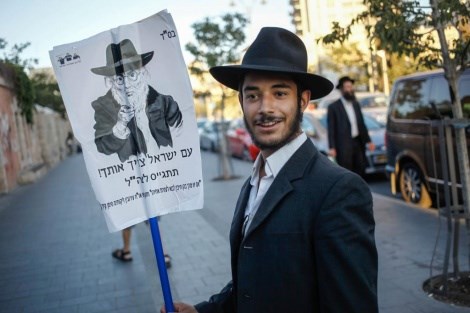
Ultra-Orthodox Integration: It Takes Two to Tango
Written By: Haim Zicherman
In an op-ed in Ynet News, IDI researcher Dr. Haim Zicherman discusses the steps that Israeli society must take in order to enable ultra-Orthodox men to integrate into the Israeli army and workforce.

Israeli Views of Diaspora Jewry 2014
Written By: Mr. Chanan Cohen, Ella Heller, Prof. Tamar Hermann
How do Jews in Israel see their connection with Jews in the Diaspora? In preparation for the first <a href="http://jms.org.il" target="_blank">Jewish Media Summit</a> (JMS), IDI's Guttman Center for Surveys conducted a survey of the attitudes of Israeli Jews toward Diaspora Jewry.

Shavuot in Israel: A Celebration of Torah or First Fruits?
Written By: Hizky Shoham
Dr. Hizky Shoham explores the multiple identities of the holiday of Shavuot, which began as an agricultural festival, was transformed into the "holiday of the giving of the Torah," and is most often commemorated as a celebration of Torah in today's Israel—by secular and observant Jews alike.
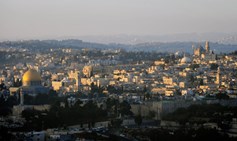
A Royal Sanctuary: Three Scenes for Jerusalem Day
Rabbi Dr. Benjamin (Benny) Lau presents three snapshots from different times and places, reflecting on a city that combines ancient and modern, sacred and secular, eternal truths and ordinary life.

My Jerusalem: Thoughts for Jerusalem Day
Written By: Prof. Mordechai Kremnitzer
IDI Vice President Prof. Mordechai Kremnitzer shares thoughts on Jerusalem, which symbolizes what is most beautiful and exalted in Jewish culture: the commitment to law and morality, to justice and mercy.

A Jewish State Warrants Our Sacrifice
Written By: Prof. Yedidia Z. Stern
IDI Vice President Prof. Yedidia Stern reflects on the privilege of sacrifice and the necessity to maintain a Jewish Israel in order to justify that sacrifice, in an article written for Remembrance Day for the Fallen of Israel's Wars and Victims of Terrorism.

2014 Israeli Independence Day Mini-Survey
87% of Jewish Israelis Celebrate Yom HaAtzmaut as a Holiday, 68% of Arab Israelis Do Not
Majority of Israeli Jews Support Reducing Gov't Support for Institutions Which Mark Israeli Independence Day as the “Nakba”
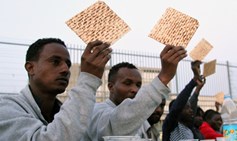
The Lessons of Passover: We are the Other
Written By: Prof. Yedidia Z. Stern
Prof. Yedidia Z. Stern asserts that if we see ourselves as "other" and identify with the stranger, the poor, and people with disabilities, historic redemption of our ancestors from Egypt will be an ongoing redemption for our generation.

Basic Law: Referendum—Changing the Rules of the Game of Israeli Democracy
Written By: Dr. Dana Blander
Dr. Dana Blander draws on the findings of Israeli public opinion polls and explores some of the ramifications of the new Basic Law: Referendum, a law that establishes a system in which every citizen is entitled to participate in historic decisions on withdrawal from territory.

On Leadership and Responsibility: The Lessons of the Purim Story
Written By: Shira Ruderman, Benjamin (Benny) Lau
Rabbi Dr. Benny Lau and Shira Ruderman, Israel Director of the Ruderman Family Foundation, share thoughts on the Purim story, leadership, responsibility, and repair of the world.

Is "Israeli" a Nationality?
Written By: Jay Ruderman, Prof. Yedidia Z. Stern
Should the State of Israel recognize "Israeli" as a nationality? IDI Vice President Prof. Yedidia Stern and Jay Ruderman assert that it is imperative for the State of Israel to continue distinguishing between citizenship and nationality.
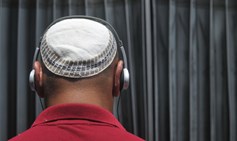
No to the Separation of Religion and State in Israel
Written By: Yair Sheleg
Should the American model of separation of church and state be applied to Israel? In an article in <em>The Jewish Week</em>, IDI's Yair Sheleg argues that Israel needs a unique model.

Standing before God: Reflections on Yom Kippur
Written By: Yair Sheleg
Why is Yom Kippur the most significant day on the Jewish calendar? What explains its appeal even to people who define themselves as "secular"? IDI research fellow Yair Sheleg shares his thoughts on this matter.

The High Holidays: A Personal and National Time
Written By: Prof. Yedidia Z. Stern
Prof. Yedidia Z. Stern shares thoughts on the Hebrew calendar, which contributes to Jewish unity and preserves the Jewish people as a single national and cultural unit.
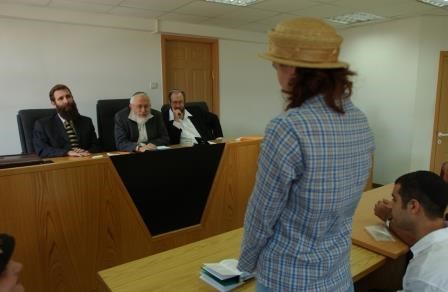
Conversion in Israel: From Bethlehem to Chelm to Sodom
Written By: Prof. Yedidia Z. Stern
IDI Vice President Prof. Yedidia Stern responds to the State Comptroller's findings on conversion in Israel and calls for a solution that will enable Israelis from the former Soviet Union to join the ranks of the Jewish people.

Belief in God is Not the Problem in Israel
Written By: Yair Sheleg
Recently, the findings of the third Guttman-AVI CHAI report—A Portrait of Israeli Jews: Beliefs, Observance, and Values of Israeli Jews—were presented to the public. The findings have drawn much media coverage because they revealed that an overwhelming majority of Israeli Jews believe in God. In an op-ed from <em>Haaretz</em>, IDI Senior researcher Yair Sheleg responds to columnists who were alarmed by the findings regarding belief in God, and argues that what is really of concern is the inverse relationship between this belief and belief in democratic values.

A Jewish and Undemocratic State?
Written By: Prof. Yedidia Z. Stern
The proposed "Basic Law: Israel – The Nation State of the Jewish People" has the support of one third of the members of Knesset. In this op-ed, which was originally published in Hebrew in Yedioth Ahronoth, IDI Vice President of Research Prof. Yedidia Z. Stern, who is deeply committed to the Jewish nature of the State of Israel, warns that the shift from defining Israel as a "Jewish and democratic state" to a "Jewish state with a democratic regime" is not a semantic shift, but a seismic change.

Religious Incitement: A Test Case for Freedom of Speech?
Written By: Prof. Yedidia Z. Stern
In an op-ed in Yedioth Ahronoth, IDI Vice President Yedidia Z. Stern responds to the proposed "Dov Lior Bill" and decries the possibility that members of the clergy—of any religion—be above the law and immune from prosecution for incitement to violence when their religious teachings may encourage criminal behavior.

The "Rabbis' Letter" and Halakhah
Written By: Dr. Eliezer Hadad
The "Rabbis' Letter" signed by dozens of community rabbis in Israel in December 2010 asserts that Jewish law forbids the rental and sale of homes in Israel to non-Jews. Is renting property to non-Jews indeed forbidden by Jewish law? IDI Researcher Dr. Eliezer Hadad surveys opinions by contemporary rabbis who adopted a universalistic approach and found a halakhic basis for the equal rights mandated by both international norms and the Israeli Declaration of Independence.
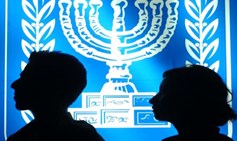
Who is Entitled?
Written By: Aryeh Eldad
The question of who is a citizen of Israel is tied to many issues in the forefront of debate in Israel: questions regarding the Jewish and democratic nature of the state, questions regarding conversion, and questions regarding the absorption of refugees and foreign workers into Israeli society. In this article, guest columnist MK Aryeh Eldad shares his views on who is entitled to be and who should be a citizen of the State of Israel.

Israeli Secularism in the Guttman Center Polls 1990 – 2008
Written By: Asher Arian, Raphael Ventura, Michael Philippov
Findings on Israeli secularism from an in-depth study of religious behavior in Israel conducted by the Guttman Center and the Avichai Foundation, which show that a vast majority of secular Jews observe certain aspects of Jewish tradition.

From Peoplehood to Brotherhood
Written By: Dr. Shuki Friedman
“It was the best of times; it was the worst of times.” Dickens’s words seem a highly apt way of describing the current state of the Jewish people, and the relationship between the two largest Jewish communities in the world – those in Israel and the United States.

Two Jewish Nations and the Abyss Between Them
Written By: Dr. Shuki Friedman
For many American Jews, identification with the State of Israel is a significant component of their Jewish identity.

This Yom Kippur, Let's Turn Down the Volume
Written By: Dr. Shuki Friedman
A country that comes to a standstill for one whole day and doesn’t derive anything significant from it is missing the point.

The Nation State law
Written By: Yohanan Plesner , Prof. Mordechai Kremnitzer, Prof. Yedidia Z. Stern
If Israel was founded as the state of the Jewish people, why is a nation-state law so problematic, having already toppled one government?

The Voice of Our Brothers' Blood
Written By: Prof. Yedidia Z. Stern
The whole world must be the arena of the war against antisemitism and the Jewish nation-state must serve as the supreme commander in this universal conflict.

'Yes' to a Nation-State, 'No' to a Nationalistic State!
Leaders of the Israel Democracy Institute call for alternative proposal that would place nation-state of the Jewish people on equal footing with democratic obligation to equality for all Israeli citizens.
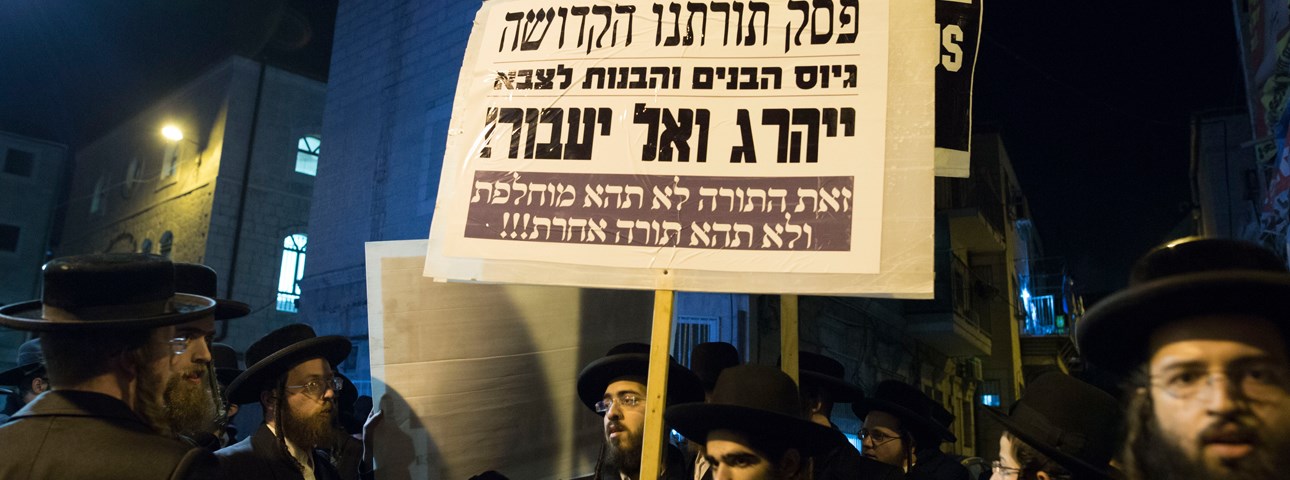
What remains of the religious status quo?
Written By: Dr. Shuki Friedman
Instead of Judaism being what unites Jews in Israel with Jews around the world, our religion has become the main source of conflict.
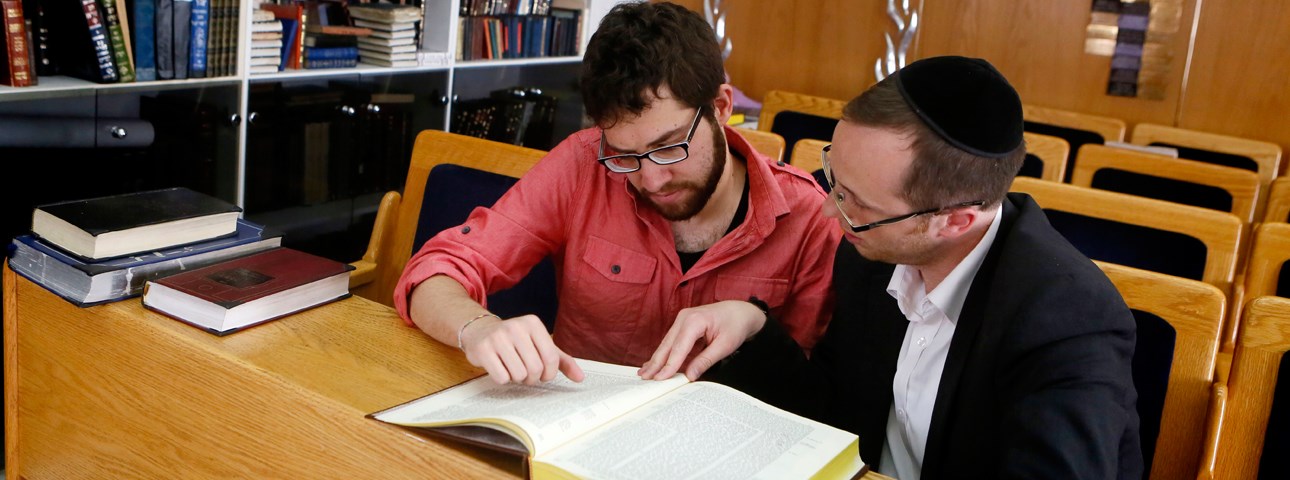
Voyage to Identity
Written By: Prof. Yedidia Z. Stern
Prof. Yedidia Stern argues that our Jewish identity and culture depend on how we understand and internalize the past.



